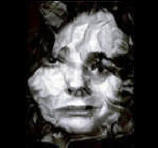|
|
|
|
|
Situation on human rights and democracy in Europe Statement on the Council of Europe Campaign to combat violence against women, including domestic violence by Ms Carina Hägg,
Strasbourg, 18 April 20071 Dear Chair,
I would like to congratulate our President and the Assembly for proposing this very important debate on the situation of human rights and democracy. As it has been pointed out by Ms Curdova and the Committee on Equal Opportunities for Women and Men, women’s rights are about human rights. As Chair of the Sub-Committee on violence against women of the Parliamentary Assembly, it is my pleasure to inform you that the Parliamentary Assembly is not only discussing the issue of human rights, but also taking concrete action to protect them. Our Assembly is indeed fully involved in the implementation of the Council of Europe Campaign to combat violence against women, including domestic violence, which was launched in the Spanish Senate on 27 November 2006 and will last until mid-2008. As it was earlier pointed out by our President, “domestic violence against women, whether physical, sexual, psychological or deriving from economic dependence, knows no geographical, age or ethnic or distinction and affects every type of family relationship and every social milieu”. Statistics show that at least one woman in every six throughout Europe faces violence in the home as an everyday reality. In other terms, this means that thousands and thousands of women in Europe are suffering domestic violence. This is unacceptable in our democracies. This situation led the Parliamentary Assembly to call for a pan-European Campaign and to recently adopt Resolution 1512 (2006) to mobilise all 46 national parliaments and the parliaments enjoying observer status with the Assembly under the slogan “Parliaments united in combating domestic violence against women”. We firmly believe that all parliaments can usefully contribute to ensure a better, safer environment for women. We do believe that our national parliaments and each of you have the means to create the legal conditions which will lead to a better protection of victims, to the prosecution of perpetrators and to the measures that will ensure more equality between women and men. We are also committed to work in close co-operation with NGOs and I would like to mention here the fruitful co-operation we have established with Amnesty International, which is contributing to the PACE project to combat domestic violence against women. Do I need to recall here that combating domestic violence is an obligation of every member state of the Council of Europe, deriving from the European Convention of Human Rights and from Recommendation Rec (2002)5 of the Committee of Ministers to member states on the protection of women against violence? This Recommendation sets standards, which every Member State should reach to give an adequate protection for women from violence in the home. This Recommendation should be implemented in all member states. The Council of Europe is monitoring the implementation of this Recommendation. But is it enough? The Campaign aims precisely at evaluating the existing legislation in Member States and identifying where there is a need for stronger political action and whether our monitoring mechanisms need to be reinforced. Dear colleagues, Up to now, 41 contact parliamentarians have been appointed to implement the Campaign in their national parliament. All across Europe, seminars, conferences, hearings have been organised to raise awareness of the Members of national parliaments and the general public on the need to combat what is one of the most widespread and often hidden violation of human rights. I would like to take this opportunity to thank all our colleagues who are pushing this issue in their national parliament and contribute to change mentalities. A handbook was published to help parliamentarians get involved in the Campaign and take action in their parliaments. A website, posters, leaflets, and a photo exhibition are now available, sometimes translated in the national languages with the help of the national parliament, to spread the message against domestic violence against women. Let me also point out that this Campaign contributes to reinforcing the position of the Parliamentary Assembly as a key actor of the protection of human rights and to secure the leading role of the Council of Europe in the field of human rights. This is becoming quite clear in the discussions we had with our colleagues’ parliamentarians in the European Parliament, the Interparliamentary Union or the Nordic Council. I would like to thank the Committee on Political Affairs and Legal Affairs for highlighting the issue of domestic violence in their reports and, in particular, for calling on the Committee of Ministers to take the necessary measures to step up the fight against this scourge at the end of the Campaign. The network of contact parliamentarians working in and for your national parliaments stands ready to promote cross-cutting exchange of experience and to contribute, in very concrete terms, to reinforcing the protection of human rights in each of our country. This Campaign provides you with an opportunity to be actively involved in a human rights issue, to break the silence and stand up to denounce a human violation happening every day behind closed doors. Don’t miss this opportunity – you will be saving lives. |

 Print
Print  Send
Send